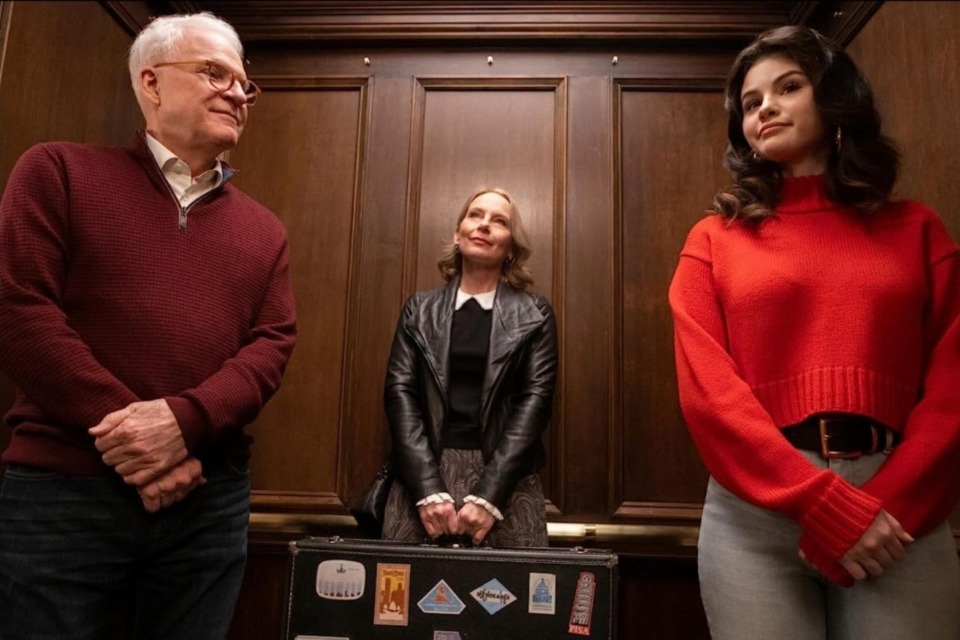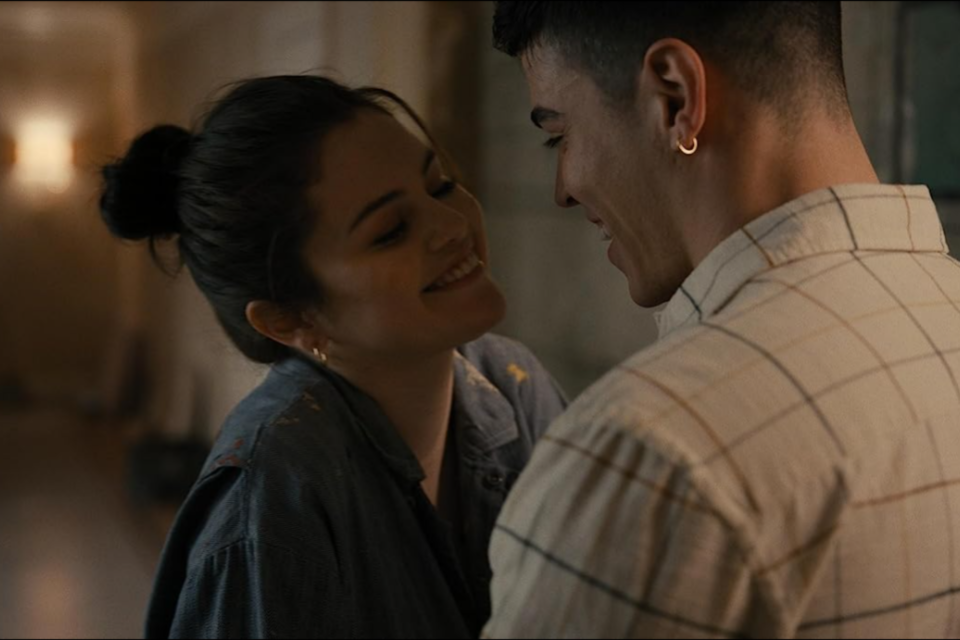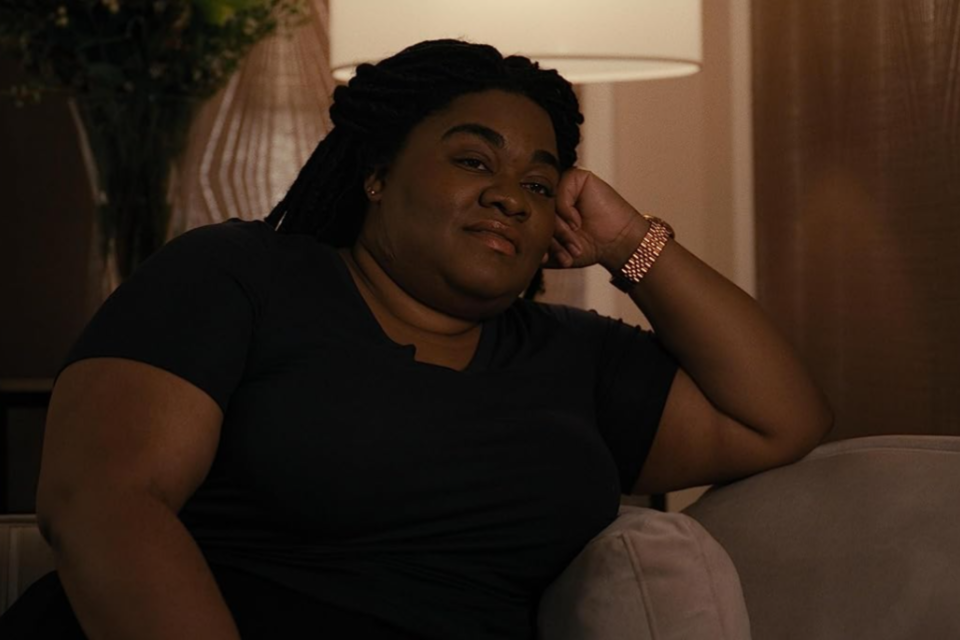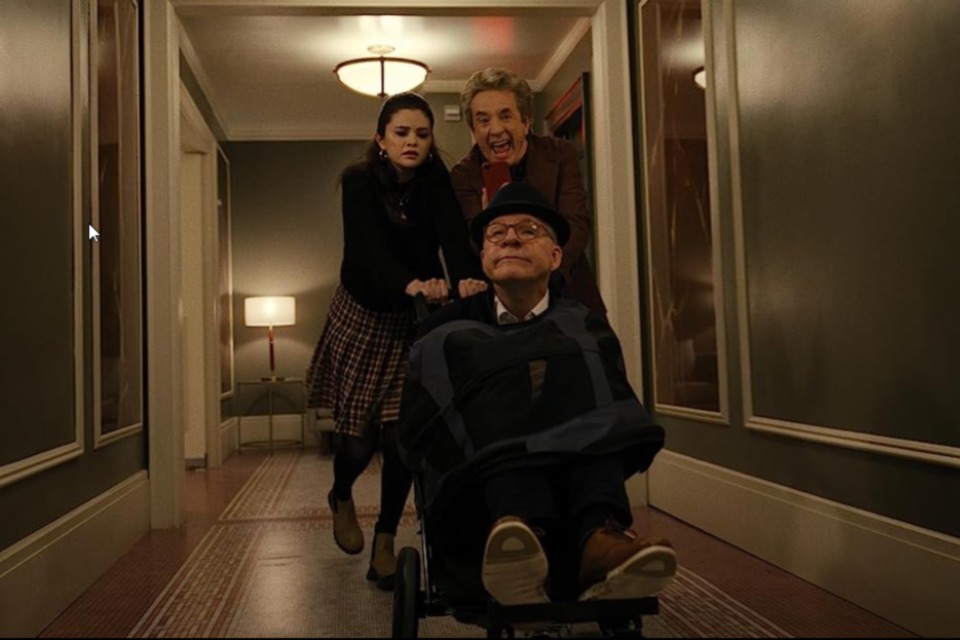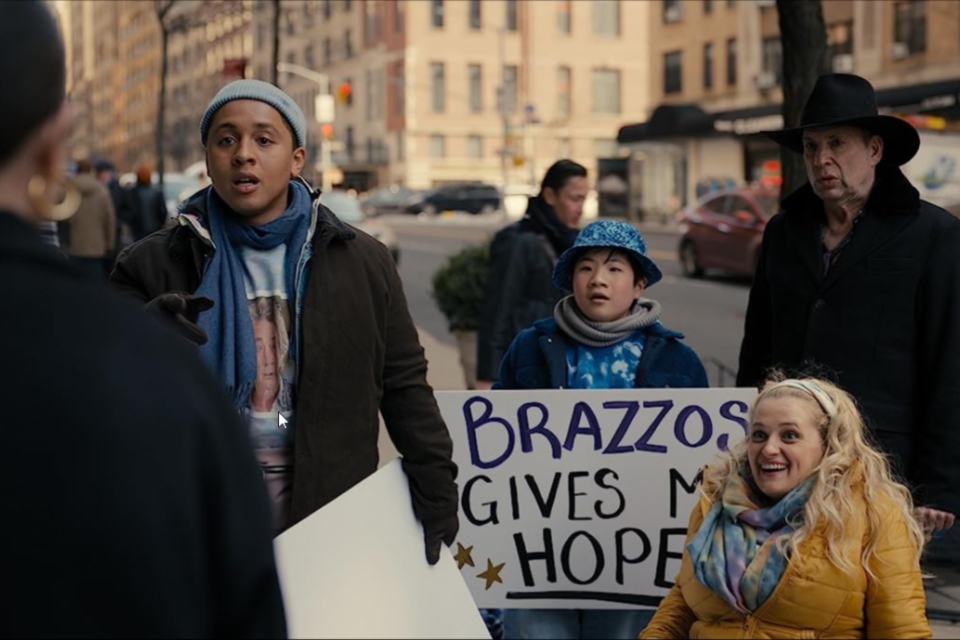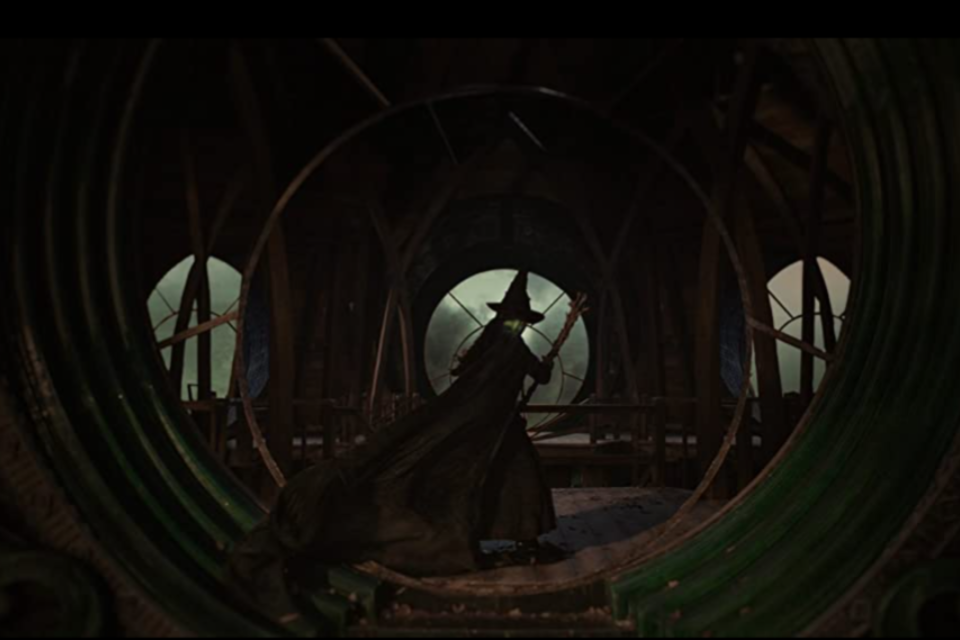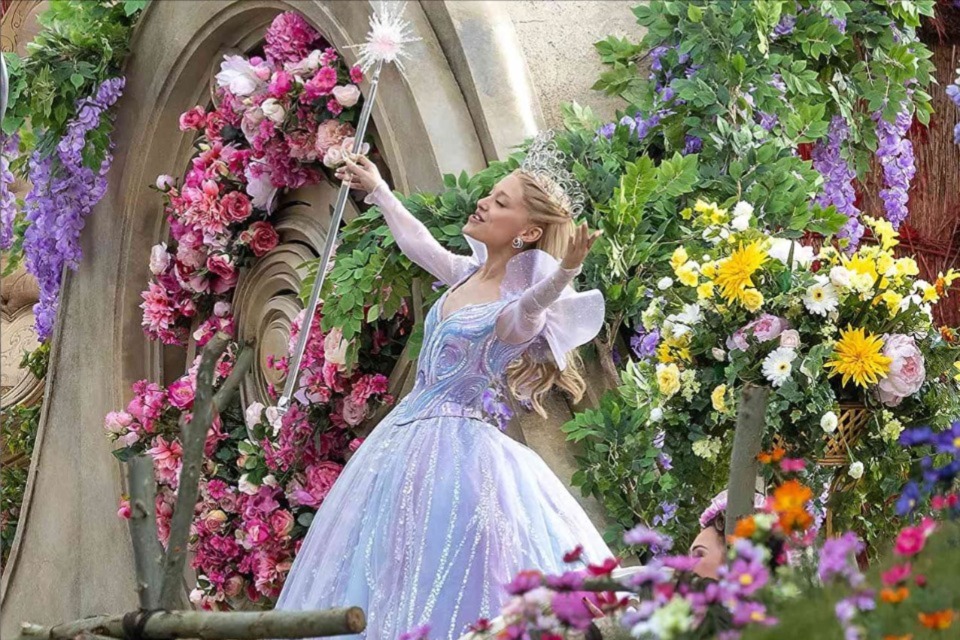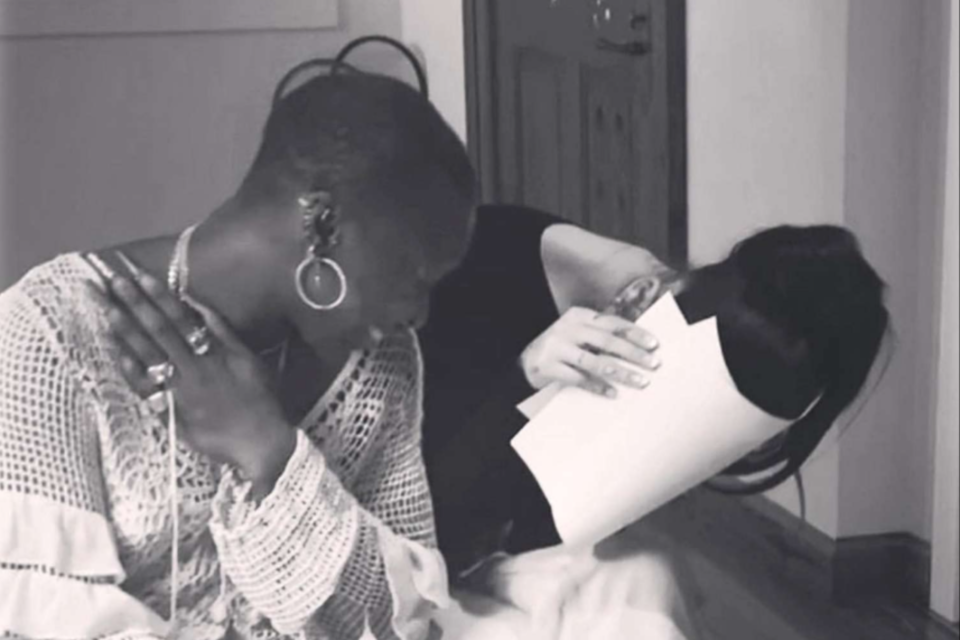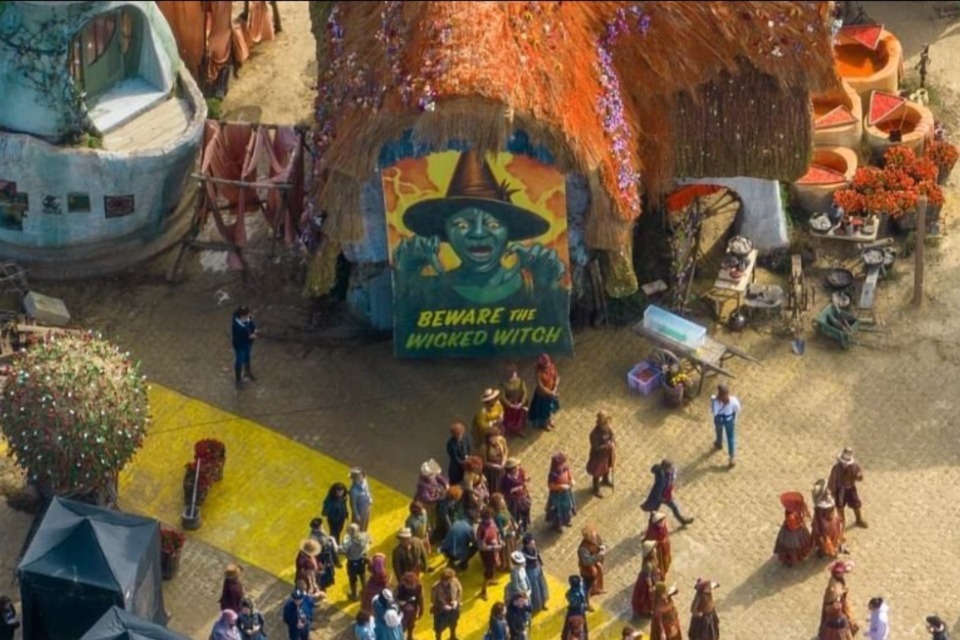Alumna brings stories to life as award-winning casting director
Tiffany Little Canfield (Drama '00) is one of the most in-demand casting directors in the business — casting roles for Broadway, TV, film and commercials. Her work has received national acclaim, including four Emmy nominations for Outstanding Casting, the Robert Altman Spirit Award, two Artios Awards for Outstanding Achievement in Casting and the CSA Media Access Award for promoting awareness, accessibility and accurate depictions of people with disabilities.

Drama alumni Tiffany Little Canfield is an award-winning casting director with The Telsey Office. / Photo: Casting Society @csacasting
Little Canfield’s best-known work includes “This is Us,” “The Greatest Showman,” “Only Murders in the Building” and “In the Heights.” Most recently, the LA-based casting director worked on the highly-anticipated remake of “The Color Purple,” as well as Disney’s “The Little Mermaid” and Jon M. Chu’s film adaptation of “Wicked” – two movies whose casting decisions broke racial barriers. She works for one of the busiest casting companies in NYC, The Telsey Office, and helped expand their operations to the West Coast.

Phylicia Pearl Mpasi and Halle Bailey in "The Color Purple," which Tiffany Little Canfield helped to cast.
Finding her calling
Born and raised in Sacramento, California, Little Canfield fell in love with theatre at a young age. In middle school, her speech contest coach – also the drama program head – recognized her talent and urged her to audition for the school play. She landed a small role and was hooked, continuing to pursue acting in high school and college.
Despite her love for acting, Little Canfield realized it wasn’t quite enough; she was too big-picture-focused. “For my personality, the role of the actor did not have enough power or voice to really ultimately affect the finished product,” she explained in an interview with PCPA Casting Director Erik Stein. When a teacher suggested she study directing instead, she jumped at the opportunity and applied to the directing program at UNCSA.
Little Canfield describes her four years at UNCSA as the most critical time in her life. Though she’d always done well in school, it was the first time she felt treated like a professional that had a place in the industry. “I think we are all afraid of not finding a place where our talents are recognized and validated. Once we find that place, we can gain the confidence to approach the real world,” she says.
I think we are all afraid of not finding a place where our talents are recognized and validated. Once we find that place, we can gain the confidence to approach the real world.
Tiffany Little Canfield
After graduating with her Bachelor of Fine Arts in Directing, she moved to New York City. Looking for an internship or assistantship where she could learn the world of NYC theatre, she applied to be a casting assistant on Baz Luhrmann’s production of Puccini’s “La bohème” on Broadway. “I had just seen ‘Moulin Rouge’ seven times,” Little Canfield remembers. “Baz drew me to apply for that position, not the idea of casting.” After only one month, she knew she had found a path for herself.
The craft of casting
The casting of a project can make or break a production. A casting director’s job is to scout the best talent, direct that talent in giving a great audition and then present the talent to their client — the person or team putting on the production.
As a casting director, Little Canfield works on various projects from film to Broadway at any given time. Each has its own parameters that she adjusts to. Still, all have the same overarching goal: to find the most appropriate talent for the production. “That never changes,” she says. “But the jobs change, which is what makes it fun. You get to look at talent in an entirely new way.”
A typical day starts with looking at emails, scanning for “casting crises” or immediate needs, reviewing submissions and researching new actors. Little Canfield may have an audition session, where she works with actors on scene work, or a producer session, auditioning with the full creative team. “Those are very exciting days – it’s when you get to share your work and truly collaborate on putting together the cast,” she says.
On any given day, there’s also a good chance she’s working on a project with UNCSA connections, like Hulu’s “Only Murders in the Building.” Her casting work in season one of the show helped it become what Backstage magazine called “the best TV ensemble of the year.” And the cast just keeps getting better – alongside favorites like Steve Martin and Selena Gomez, season three welcomes a host of talented actors, including Meryl Streep and alumnus Wesley Taylor (Drama '08).
Then there are collaborations like NBC’s breakout show “This Is Us”: as a show writer, alumna Vera Herbert (Filmmaking, ‘11) helped create the production that Little Canfield helped cast – a cast which included alumni Megan West (Drama ‘13) and Vanessa Hernandez (Drama ‘10). With multiple awards and nominations, it’s safe to say that this alumni collaboration was a success.
An evolving industry
As a casting director, Little Canfield is constantly adjusting to new projects, parameters and clients. Meanwhile, the industry itself continues to evolve alongside society. Little Canfield shares that one of the most significant changes in the casting industry over recent years “has been the use of virtual auditions and callbacks,” which was a direct result of the COVID-19 pandemic.
While many negatives are associated with the pandemic, Tiffany emphasizes one positive effect when speaking with the LA Times – “It’s created a lot more opportunity for newcomers” because it’s given casting directors the ability to consider more performers than ever before.
And the shift within the casting world over recent years doesn’t end at virtual auditions. The current push for authentic on-screen representation is at the forefront of conversations and is shaping the future of casting. This emerging progressive mindset excites Little Canfield because it allows the next generation of actors to see themselves on screen and “know there’s a place for them.”
Dedication to representation
While there are still many obstacles to overcome, such as “frequently vague character descriptions which can lead to unconscious bias,” progress perseveres. Little Canfield’s team at The Telsey Office has dedicated themselves to creating “safe, equitable, anti-racist spaces.” This dedication is particularly visible in two of Little Canfield’s recent projects – “Wicked” and “The Little Mermaid,” both of which made headlines for their casting decisions.
The protagonist of Broadway’s “Wicked,” Elphaba, is “essentially an activist who fights for the oppressed and is discriminated against because of the color of her skin,” writes the LA Times. Yet out of all the iterations of the hit musical only one Black actor has played Elphaba full time, and she described experiencing extensive racism for “taking a white role.”
Enter “Wicked” the movie, with Little Canfield and Bernard Telsey as casting directors: Cynthia Eviro has broken a decades-long bias and been cast as Elphaba. A diverse array of actors, including Ariana Grande and Michelle Yeoh, perform alongside her. “And that’s how we hope the future is, that we have roles that are not specifically written for this or that or whatever,” Yeoh said on the Jess Cagle Show, applauding the “Wicked” movie’s diverse cast. “As long as you have the capabilities, please join the cast.”
Meanwhile, Little Canfield worked on “The Little Mermaid,” in which Halle Bailey made a splash in her casting as Ariel. While a racist backlash to the casting made director Rob Marshal realize how far Hollywood still has to go, the overwhelming response has been celebratory. As Disney’s newest princess, Bailey has given countless young people of color representation, and her performance as Ariel is unparalleled. And the stellar casting didn’t stop there – the movie has garnered rave reviews for performances by Melissa McCarthy, Javier Bardem and more.

Halle Bailey starred as Ariel in Disney's live action "The Little Mermaid."
Continuing to grow
With every project, Little Canfield continues to grow as a casting director and artist. From her initial love of the theatre to discovering casting as a career, she’s embraced opportunities as they come. “Say ‘yes’ to everything,” she advises UNCSA graduates. “‘Yes’ to web series, ‘yes’ to play readings, ‘yes’ to going to see that independent film. No one’s path is the same and there isn’t one definition of success.”
As for Little Canfield, she will keep working on award-winning projects, always striving to find the best talent for the role and tackling inherent bias in Hollywood. Next time you’re watching a production and find yourself transported by the incredible cast, check the credits – it might just be Little Canfield who made that perfect match.
by Sasha Hartzell and Erin Street
Originally published: December 17, 2018
Updated: June 9, 2023





